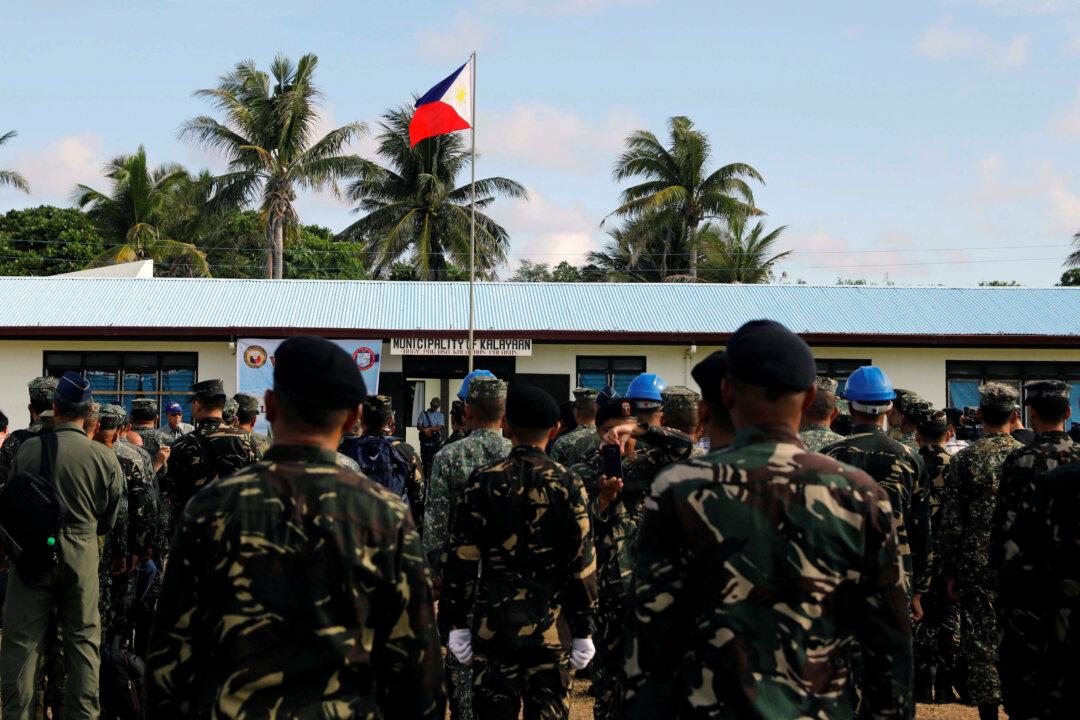MANILA—Philippine President Rodrigo Duterte told China on April 4 to “lay off” an island occupied by Manila in the disputed South China Sea and said he would deploy his soldiers there if Beijing touches it.
Duterte’s remarks, which he said was not a warning but rather a word of advice to a friend, follow a statement made by the foreign affairs ministry calling the presence of more than 200 Chinese fishing boats near Thitu island illegal.





